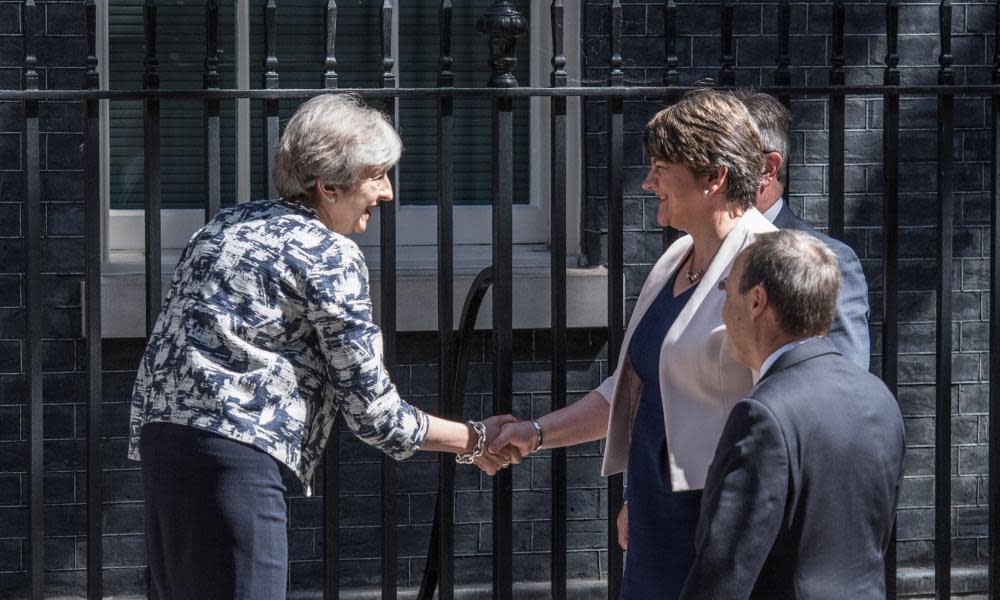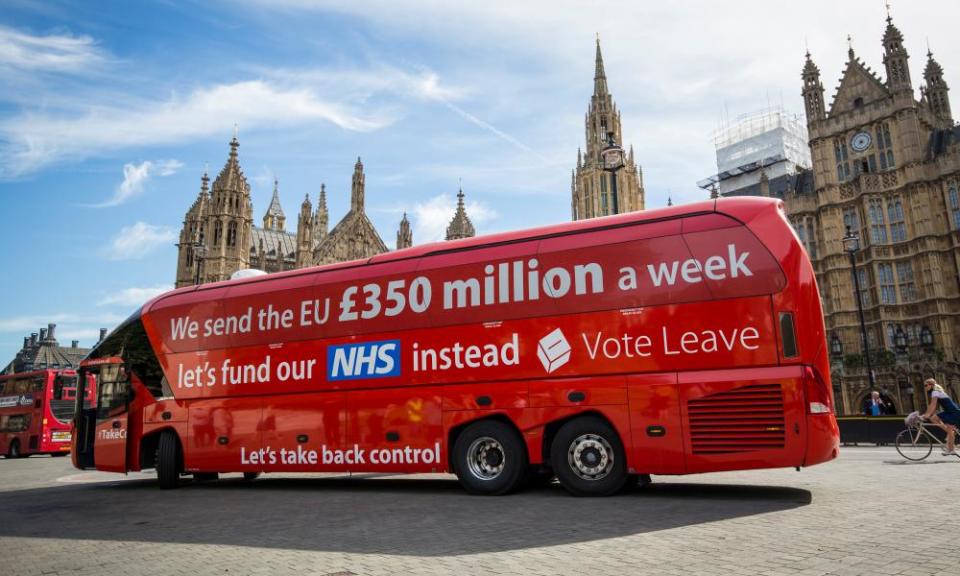Yes, Northern Ireland should have the £1bn. But what about other UK regions? | Jonn Elledge

One of Theresa May’s more memorable screw-ups, in an election campaign not short of them, came on Question Time at the start of June, when a nurse, who had not had a pay rise since 2009 gently queried when this might change. The prime minister sympathised (at least, I assume that’s what she was trying to do). But, she added, “I’m being honest with you ... There isn’t a magic money tree that we can shake.”
That was nonsense. OK, money isn’t infinite, and choices have to be made. But one of the choices the Conservative party had made was to get spending down, in part by leaning hard on public sector wages. Other options, like higher taxes, had not been chosen. What’s more, Britain controls its own currency and money supply. In a very real sense, there is a magic money tree: the Tories had simply decided not to shake it.
And lo, it came to pass that, shorn of her majority, May found her magic money tree. It was growing, it turned out, in Ulster, watered by the party’s desperation for the votes of the Democratic Unionist party. The “confidence and supply” deal which will keep them in power, at least for the moment, comes with price tag of £1bn. Amazing what you can find in trees, isn’t it?
In 2019, it’s up for negotiation again. Lucky there are no other economic crises due to hit the economy before then, eh?
It’s worth taking a moment to spell out what a billion quid buys you these days. Some £400m will go on new physical infrastructure; £150m on better broadband, and £100m (over five years) will tackle deprivation. Another £350m – where have I seen that number before? – will go to the health and education services. A million here, a million there, and before you know it you’re talking real money. (The Northern Ireland executive will get greater control over what happens to another £500m in its existing budget.)
In all, the deal is worth the equivalent of £537 for every person in Northern Ireland – or, if you prefer, £100m for every DUP vote in the House of Commons. That’s only for the next two years, though. In 2019, it’s up for negotiation again. Lucky there are no other economic crises due to hit the British economy in the first half of 2019, eh?
It’d be unfair misleading to extrapolate from that figure, to frame it in terms of what it’s worth in the rest of the UK. But I’m an unfair and misleading person, so I’m going to do it anyway. Around 1.8m people live in Northern Ireland. Extrapolating based on population size, this is the equivalent of an extra £1.6bn in Wales, an extra £2.8bn in Scotland, or an extra £28.5bn in England.

In some ways, over two years, the combined £34bn that results if you imagine the DUP deal going UK-wide isn’t that huge a sum: it’s enough to keep the NHS running for just over three months. On the other hand, it amounts to over £325m a week of extra money, which isn’t that far off the number we all saw plastered on a bus not that long ago. It’s real money that Theresa May is throwing at Northern Ireland, in order to cling on to power. Little wonder that the first ministers of Scotland and Wales respectively described it as “grubby” and “a bung”.
It was Jeremy Corbyn, though, who asked the biggest question: “Will all parts of the UK receive the much-needed additional funding?” The answer, so far, seems to be no: the Barnett formula pegs spending in the three Celtic nations to that in England, not the other way around. But there is a difference between legal requirements and political ones, and while there may be no mechanism to get spending flowing again in the other three nations, public demand can create a momentum all of its own.
None of this is to say that Northern Ireland shouldn’t have the money. Its citizens have the lowest average incomes of any of the four UK nations. A progressive state should invest in its poorer regions.
But while average incomes may be higher, mainland Britain contains plenty of less prosperous regions of its own. Cornwall, the Tees Valley, South Yorkshire and West Wales all rank among the poorest regions of northern Europe. To anyone who isn’t personally invested in Theresa May’s career, it’s not clear why they are more deserving of austerity than another region that simply happened to elect a politically convenient number of DUP MPs.
Not so long ago, the Tories were hoping to consolidate their hold on power by winning extra seats in areas like Wales and the north east. Perhaps they still might one day. But first, they may find they need to shake that magic money tree again.

 Yahoo News
Yahoo News 
